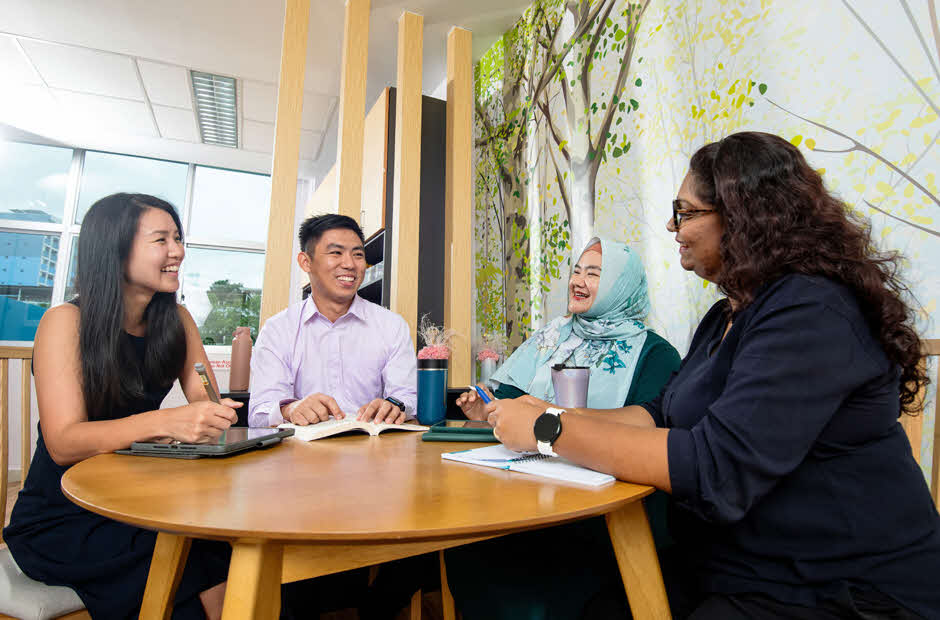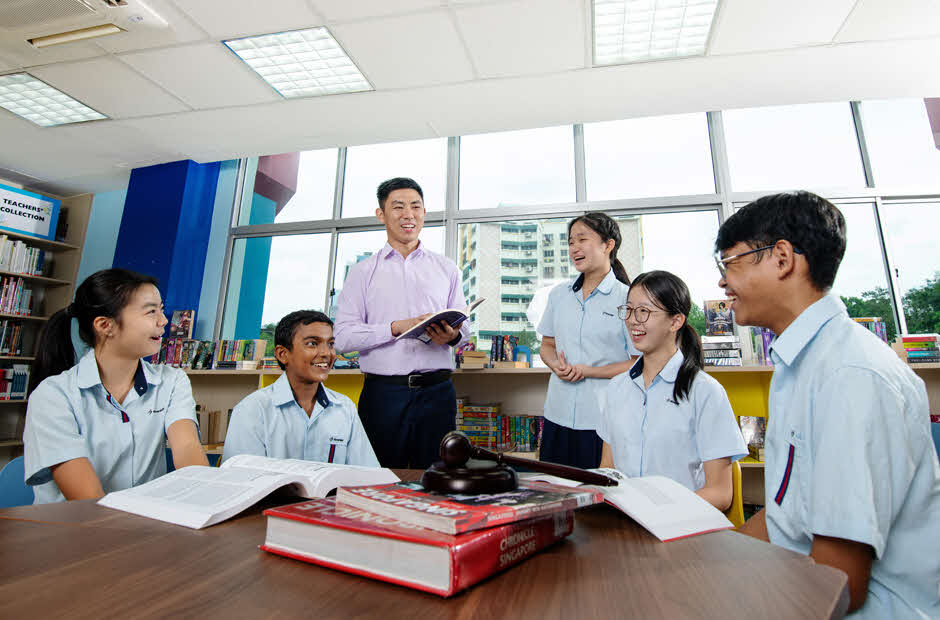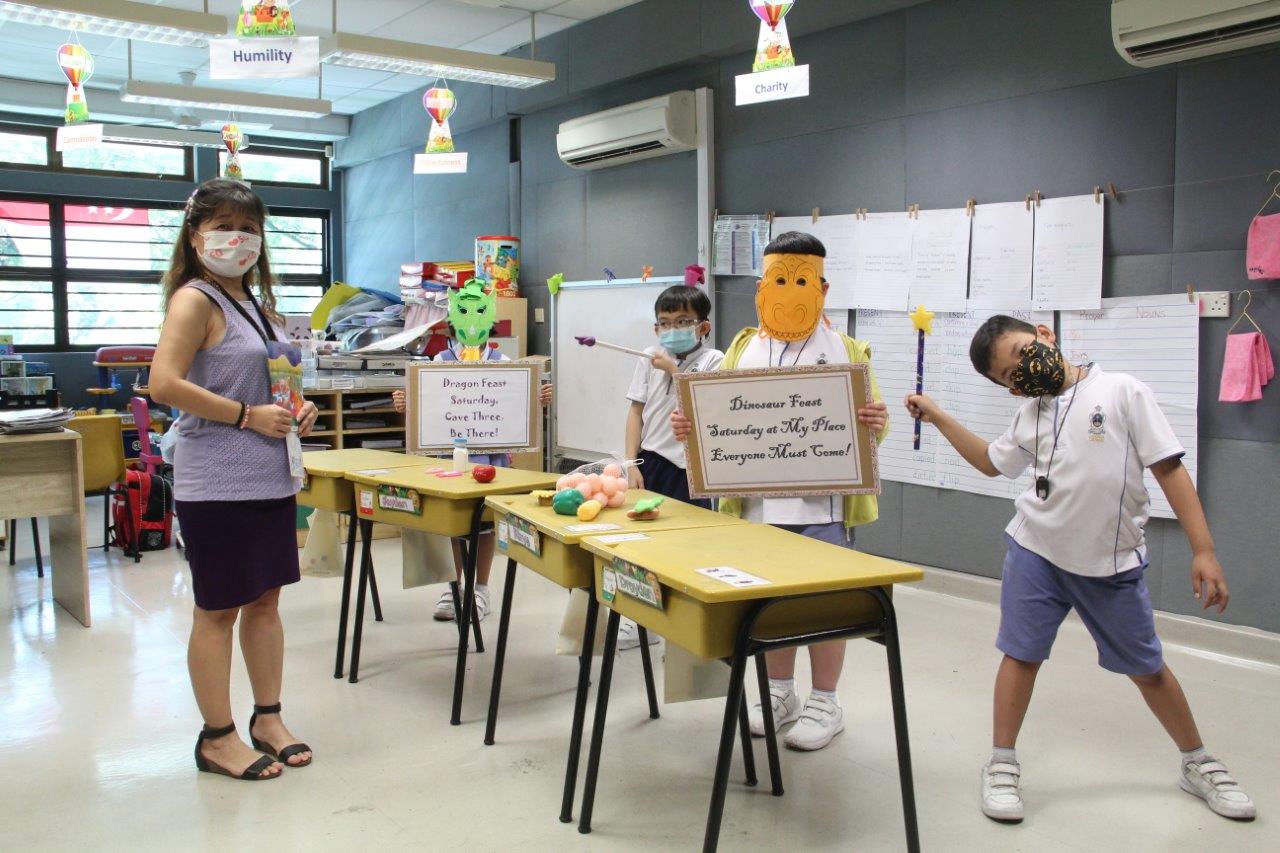What I consider a ‘win’ in teaching is… being able to remove hurdles to success for my students.
Teaching transcends mere imparting of knowledge; it’s a journey, to understand each unique child’s background, experiences, and hurdles in order to harness their potential to the fullest.
Each student has their own circumstances, yet all share the desire to excel and make their loved ones proud.
When I became the form teacher of a Normal Technical (NT) class back in 2019, I encountered students with low motivation and self-esteem. I needed to address the challenges they faced.
I started by spending much time to get to know my students on a personal level. I used to meet them before school started for the day, and during recess. Through these informal settings, students open up. I gave them advice and also lent a listening ear if they faced any challenges. Through building trust and rapport, they developed their concept of self and along with that came the intrinsic desire and confidence to pursue their dreams.
I also invited accomplished people who were once from the NT stream to speak to and motivate them, and tailored and trialled pedagogies that better suit them.
Near their graduation, I got every student to apply to the ITE Early Admissions Exercise and guided them through the process. I wanted them to set goals and to know early that “this is the course I want”. This was also a perfect opportunity to allow students to realise their strengths and achievements.
More than 50% of my class managed to secure a slot in their course of choice before their GCE N-Level examinations. It was heartening to see them pursuing their interests in earnest and developing confidence in themselves. For those who did not succeed initially, the process sparked introspection and got them thinking about what they were interested in.
A win to me is not just helping my students score the most As. It is when I successfully help my students overcome their hurdles, achieve their personal goals, and in the process, develop their moral compass so that they become responsible, empathetic, and ethical individuals. True success is measured not only by academic achievements but by the growth of character and the ability to navigate life’s challenges with integrity and compassion.
A teaching tool that I find effective is… real-world learning.
This not only adds authenticity to what students are learning in the classroom, but also bridges the gap between classroom instruction and real-life experiences.
Once, I invited migrant workers into my Secondary 1 classroom during Social Studies lesson, to be interviewed by the students for a lesson on migration and diversity. Moved by empathy, my students wrote notes of encouragement on cards to these unsung heroes, upon understanding their struggles and sacrifices.
As a grassroots leader myself, I often share stories with my students of what I witness when I am volunteering. Concepts in Social Studies like the role of citizens, or the concept of trade-offs, can then be brought to life with these personal stories. When asked why I devote my free time to community service, I respond, “Why not?” By role-modelling the commitment to give back, it instills a sense of citizenship in my students. Upon graduation, many students have approached me to ask if they could also help out in the community; they are now helping to tutor lower-income students alongside me while pursuing their education in JC and Poly.

An initiative/project that means the most to me is… our own version of the United Nations.
Riverside Secondary School didn’t use to have a Model United Nations (MUN) programme. One day, one of my students asked why, because she had heard about this at another school.
I thought, “Why not?”
Inspired by her question, my student and I collaborated over the year-end break to establish the Riverside Model United Nations (RSMUN) programme – our very own iteration of the Model United Nations educational simulation, where students role-play as members of parliament, academics and NGOs, to debate about local issues using the Model UN protocol Riverside Secondary’s version stands out for its emphasis on student agency, allowing students to express their views on local issues that concern them, and demonstrate creativity and critical thinking and active citizenship.
Another unique feature of RSMUN is that it is run for the entire cohort of Secondary 3 students annually and not just a select few.
Students propose social issues and these topics are aligned with their Social Studies syllabus. The team then propose the topics to the school leaders who gave inputs to ensure relevance and scope.
I developed a framework and a set of strategies to equip students with the necessary knowledge and skills for the conference. I also worked closely to guide students to conduct research scan and prepare detailed study guides for each issue. Each study guide act as reference materials for each RSMUN council in terms of scope, focus, and key inquiry questions for debate and discussion.
The students have a lot of autonomy and agency, organising and moderating the conference, assuming roles of stakeholders in various social issues. As a student body, they support their arguments with research and devise resolutions to address these issues. What began as a modest project has evolved into a symbol of inclusivity at Riverside, involving all Secondary 3 students in the school. It has even extended beyond our school to neighbouring schools.




-(1).jpeg)

